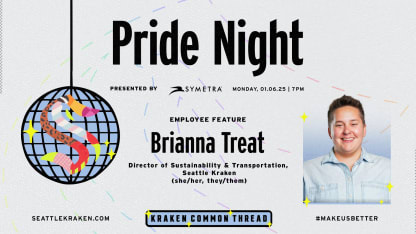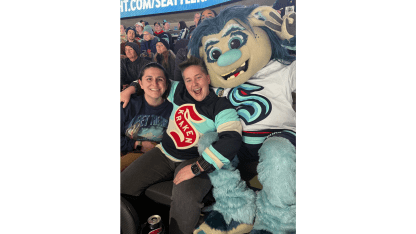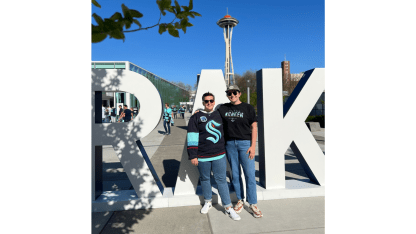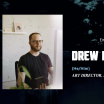Pacing the Kitchen at Thanksgiving
The B we know and see at the Kraken Community Iceplex and Climate Pledge Arena started sharing in earnest on Thanksgiving day back in 2011. She was pacing back and forth in her parents’ kitchen in Broken Arrow, OK.
“I'll never forget,” said B. “My mom finally says, ‘Well, what's wrong? I can tell something's on your mind. And I kind of just broke down because, I mean, I was taught in the [Catholic] church [and school] that if you're gay, then you're going to hell no matter what, like totally gone, kicked out.”
“From preschool to the start of college, I just felt like somebody I wasn't. I was hiding who I really was, everything that was my true self. I didn't really know what that meant or what my capabilities were because I kept them hidden because I didn't want anybody to find out anything I didn't want them to find out. Who I really am was tucked under all these secrets I kept ... I was afraid my family wouldn't accept me, my friends wouldn't accept me, and where I was living wouldn't accept me.”
B’s mom said, “I know, I’ve known, and I’m glad you told me.” But, real life here, that didn’t solve the matter in one exchange before Thanksgiving dinner. It provided an opening for B’s mom to work through the concept. B didn’t tell Dad that holiday but did so “soon after while we were in the car together.” Their father said “he kind of figured” since she had no apparent boyfriends. In that talk, B learned Dad’s brother was gay, providing a foothold of reference. But both parents were grappling with the church-going belief that their daughter was hell-bound, and maybe they both were as well for raising a gay child.
Broken Arrow is a sizeable suburb of Tulsa. In a stroke of good fortune, a priest at the parish where the Treat family worshipped was less conservative than others of the cloth back then. In a conference requested by B’s parents, the priest told them he did not believe their daughter was bound for hell, that maybe “a lot of people in this church do, but I don’t think that’s true.” B said that “gave my parents a lot of ease that maybe they were searching for but didn’t know of other parents who had someone queer in their families.” What’s unfolded for B’s parents will prompt knowing nods from the LGBTQ+ community: Over time, the Treats discovered all sorts of parents and friends who had queer children and family members, plus some of those people themselves.
Hair Apparent: Working Toward a True Self in Seattle
After telling her father, B shared being queer with her two sisters and brother and “they couldn’t be more supportive now.” Emphasis on ‘now.’
“It took a lot of uncomfortable time for everybody to get used to it, including myself,” said B. “Because I'd been hiding for 21 years. And all of that is a hard thing to unpack. A pivotal moment for me was actually when I cut my hair. I'd always felt uncomfortable with long hair. But I knew that if I cut it, it was an obvious sign, right? Especially in Oklahoma, where there weren't many people that had short hair like me, especially women, right? So crazy but true: I cut my hair. And, honestly, that's exactly when my life kind of started.”
B first started by cutting her once near-waist-length hair in increments – halfway down her back, just hitting the shoulders, up closer to the ears – not making the full move to a barber (and these days, a queer barber here in the Capital Hill neighborhood,) until five years ago at age 27.
“Although I came out in college, that's when I had to figure out who this new person was,” said B, “who am I anymore, what's my personality? How do I actually want to dress? I’ve still been figuring that out over the last five to 10 years.”
“Moving to Seattle has helped a lot because of just the LGBTQ+ community here and just the safeness that this city does bring to queer people in a way that I've never experienced.
I'd stay even to this day, I'm still trying to figure it out, because of all the time I had lost.
That’s where the Kraken come into play, said B: “I've never had a job where I felt I could be this gay, right? One in which I could present myself the way that I wanted, but still be taken seriously, especially in a leadership role. I never thought that would be possible ... moving to Seattle has really opened my eyes to the acceptance from this team and the arena, especially with me being more of a public figure to this organization.”





















